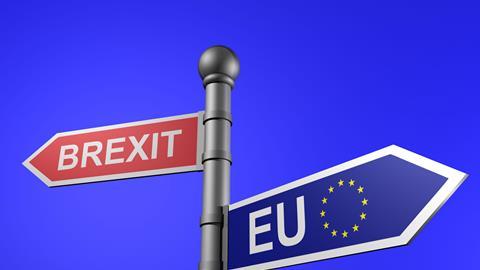The beginning of the Brexit talks this week inevitably provokes thoughts about global - not just national - challenges, and the best way to respond. I know we have voted to go it alone regarding the EU, but what alone means is still completely up in the air after the election (completely alone? partially alone?).

If you follow developments in the major bars and law societies around the world, it is striking how frequently the same topics occur, often on the same day, in the activities of organisations on opposite sides of the world. You find common concerns about judicial independence, risks from cybersecurity, attachment to human rights, future benefits of blockchain technology, and so on.
Take judicial independence. I wrote a few months ago about how the American Bar Association (ABA) had spoken out strongly on judicial independence following President Trump’s attacks on judges after they ruled against his immigration executive order. Last week, there were alarm calls in both our country and Australia.
In England and Wales, the lord chief justice took the opportunity of the change of lord chancellors to raise again the recent abuse of judges by the press, and the need for governments to defend judicial independence vigorously.
Australia faced the same problem. The Law Council of Australia issued a statement headed: ‘Political attacks on the courts a very worrying trend’. This followed views aired by federal government ministers about the sentencing of a terrorist by courts in Victoria, which included the opinion that ‘The state courts should not be places for ideological experiments in the face of global and local threats from Islamic extremism that has led to such tragic losses’. Three ministers have now been summoned by the court to explain their comments within the framework of possible contempt charges.
The European Network of Councils for the Judiciary has recently published a survey on the ‘Independence, Accountability and Quality of the Judiciary’ in European countries. Although there were no particular alarm calls on independence, ‘22% of all participating judges feel that the judiciary is not respected by government and parliament, with 34% thinking the same about the traditional media.’
Judicial independence may be a topic on which it is difficult to take collective action, but the EU and the Council of Europe have tried in recent times, most particularly in the case of Poland, following a long row over the appointment of judges to the Constitutional Tribunal.
On a different topic, on the same day that the SRA took to social media to warn solicitors about cybersecurity, the ABA urged a senate committee to support cybersecurity legislation which would would enhance the ability to share cyber threat information.
Last week, the Law Society held a session at London Tech Week on ethics and potential bias in the age of algorithms, asking questions like ‘will artificial intelligence move from ‘computer’ to ‘colleague’?’. And this week the French Bar (Conseil National des Barreaux) is holding a similar session on putting artificial intelligence to work for lawyers.
In my view, there is no point in following these developments without trying to put a pattern on them. Otherwise, you become lost in a blizzard of tweets, press releases and conferences. So here are my conclusions.
Three principal upheavals are facing most, if not all, countries: technology, globalisation, and terrorism. If globalisation did not feature in the list of practical examples above, it is not for want of choice: there were statements and conferences galore, for instance on how best to combat money laundering, or on the consequences of Brexit. Indeed the spread of technology and terrorism is itself a consequence of globalisation.
These three upheavals are causing stresses to existing systems of the rule of law, whether it be how judges decide cases, how algorithms affect justice, or how legal services are best delivered. No one can comprehend the totality of the upheavals nor predict how the world will eventually be shaped. (One could even add a fourth upheaval, which is climate change, regrettably disputed – and there was bar activity on that, too.)
Lawyers are struggling to deal with the consequences for ourselves, even though the solutions nearly always lie well beyond our profession. One of the curious features of the three forces, indeed the four, is that they are all cross-border. That is why they crop up in bar responses everywhere.
In the week in which the Brexit talks begin, we face questions about how to face these global upheavals. The electorate has decided ‘not with the EU’. But quite how far we should go it alone is now in debate after the election. The government has to interpret the mandate, and decide whether, in the face of gigantic cross-border challenges, it is sensible to be ‘very alone’.
































1 Reader's comment